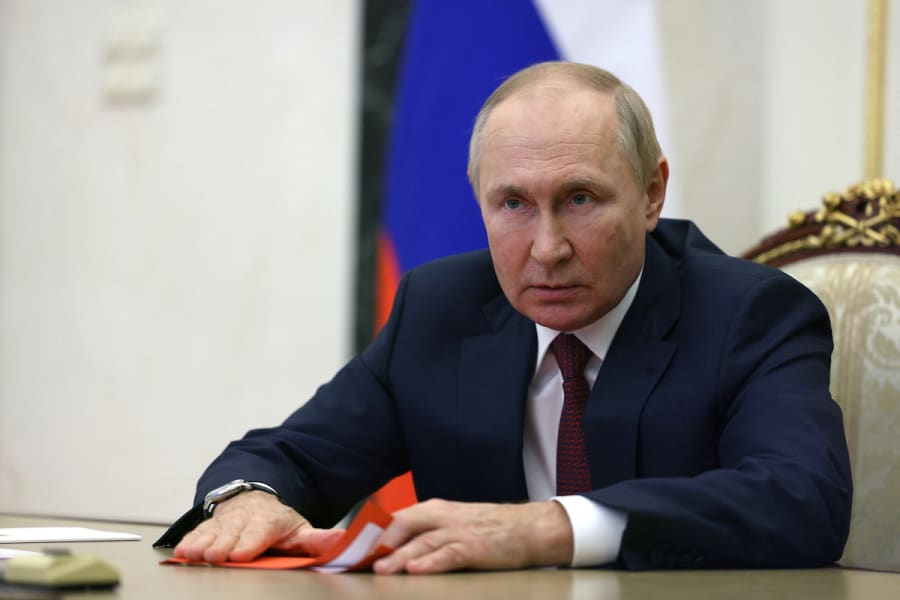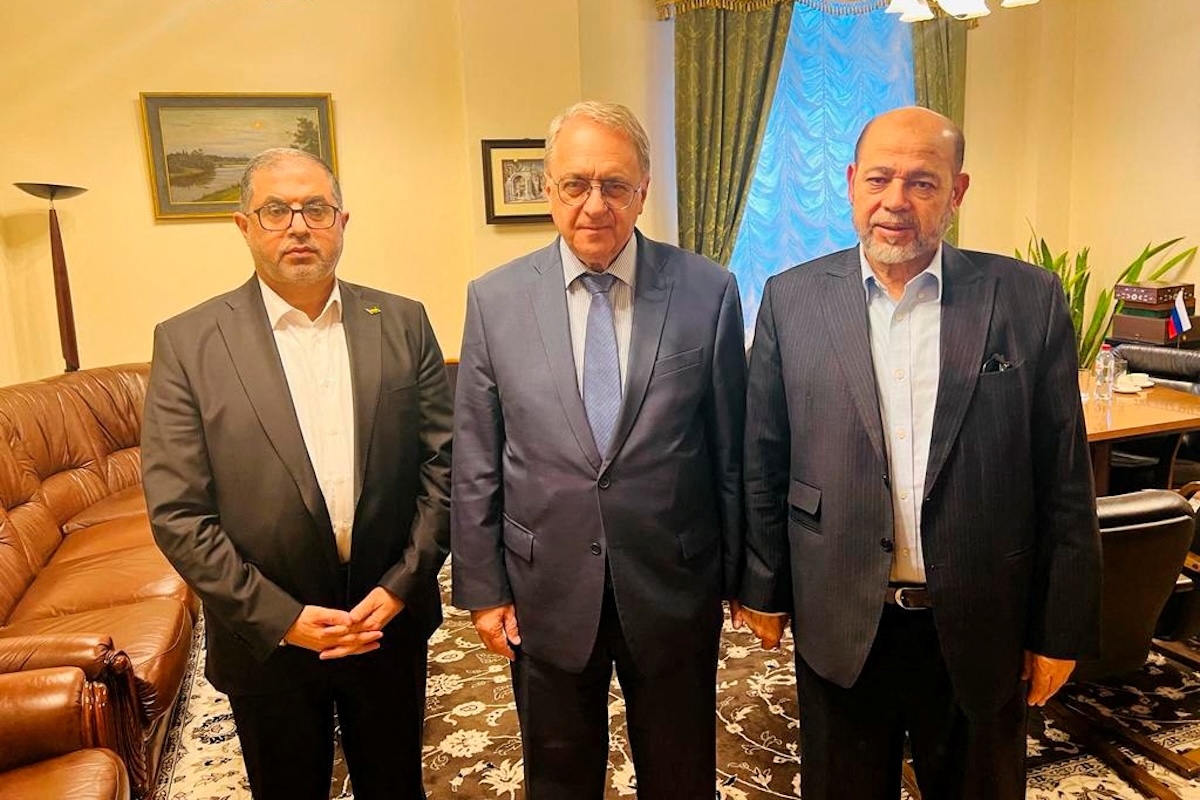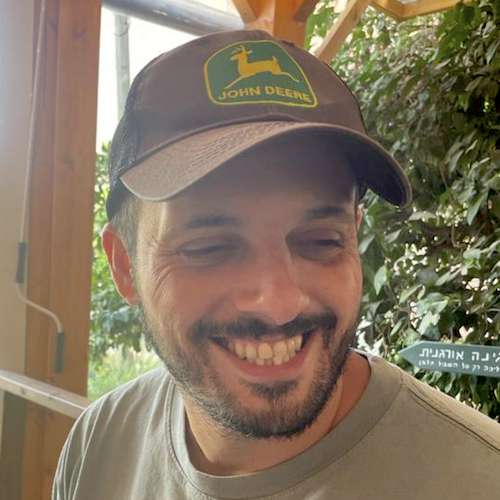Putin’s 'pravda' unveiled: Russia's growing hostility towards Israel
October 7, 2023, finally exposed which truth was real

In Russian political thought, truth – pravda – carries two faces: what is true, and what the state decides should be true. For decades, Russia maintained two contradictory truths about Israel: publicly claiming friendship, while secretly arming its enemies. October 7, 2023, finally exposed which truth was real.
"There are no conditions of life to which a man cannot get accustomed," wrote Dostoevsky. Israel had grown accustomed to Russia's double game, convincing itself it could manage Moscow through careful diplomacy. That illusion shattered when President Vladimir Putin waited three days after Hamas' massacre to speak, then blamed Israel rather than the killers.
The betrayal cuts deeper because of the two nations' intertwined past. Russia's Jews helped birth the modern state of Israel. David Ben-Gurion, Ze'ev Jabotinsky, and other founding fathers emerged from the Russian Empire's Jewish communities, carrying with them both revolutionary dreams and bitter memories of persecution. They built Israel's first kibbutzim on models learned from Russian farms, organized labor unions based on Russian examples, and even borrowed military tactics from Russian theorists.
From revolution to enemies
Stalin briefly supported Israel's creation in 1948, seeing a chance to weaken British power in the Middle East. But Moscow soon turned against the Jewish state, arming Egypt's Nasser in the 1950s and Syria's Assad (Bashar's father) in the 1970s with weapons aimed at Israel's heart. Through every Arab-Israeli war, Soviet weapons and advisers helped those who sought Israel's destruction.
The arrival of over a million Soviet Jews in Israel during the 1990s created new bonds between the nations. These Russian speakers brought their language and culture, building bridges that would prove crucial in the decades ahead. Under Putin's early leadership, Russia and Israel developed an unusually pragmatic relationship.
Netanyahu and Putin met frequently, sometimes several times a year, coordinating their interests, particularly regarding Syria. This personal diplomacy, combined with growing economic ties and Israel's neutrality on the Crimea issue, created what appeared to be a stable partnership.
The relationship reached its peak between 2015 and 2022. After Russia intervened militarily in Syria, the two countries established a deconfliction mechanism allowing Israel to strike Iranian targets there without risking confrontation with Russian forces. Israel even provided Russia with advanced drone technology, while refusing to supply similar systems to Ukraine after 2014. Trade between the nations grew, reaching billions of dollars annually. Russia's state nuclear corporation Rosatom and Israel's Innovation Authority launched joint research projects.
Russia's Middle East chess game: Power, influence, and Israel in the balance
This is where we must address the bigger picture of Russian evolving interest before we can tell the story of the relationship between Russia and Israel further. Vladimir Putin's Russia has embarked on an ambitious quest to challenge what it sees as Western hegemony, particularly in regions historically significant to Russian interests.
"The world is transitioning from a unipolar to a multipolar order," Putin declared in 2023, articulating a vision where Russia stands as a counterweight to Western influence.
Russia's moves in the Middle East reflect a calculated strategy to rebuild its global influence. The region serves as a crucial testing ground for Moscow's ability to project power beyond its immediate neighborhood, while simultaneously challenging U.S. dominance.
The careful balance established between Russia and Israel began unraveling after Russia invaded Ukraine in 2022. Though Israel initially tried to maintain neutrality, providing only humanitarian aid to Ukraine, strains emerged. Russia grew increasingly critical of Israeli strikes in Syria, while Israel faced growing pressure from Western allies to take a harder line against Moscow. When Russia started using Iranian drones against Ukraine, the contradiction between Israeli and Russian interests became harder to ignore.
Proxies and mercenaries
Russian officers have trained Hezbollah fighters in advanced combat tactics while providing technical expertise for drone and missile operations.
If that wasn’t enough, Wagner Group mercenaries, a Russian private military company linked to the Kremlin that operates in various conflict zones worldwide, have trained Hamas fighters in combat tactics and drone operations. Russian military advisers work with Houthi rebels who target Israeli shipping. Fighters recruited from Syria and Yemen receive advanced training in Ukraine before returning to the region with enhanced capabilities and Russian equipment.
This military cooperation creates a force multiplier effect. Russian expertise helps Iran improve the accuracy and effectiveness of its weapons. Iranian forces learn advanced combat tactics from Russian advisers. These enhanced capabilities then flow to groups directly threatening Israel, creating an increasingly sophisticated web of hostile forces around Israel's borders.
Words as weapons: Russia's war of information
In addition to providing military support, knowledge, and training to Israel's enemies, Russia is also waging a war of information against Israel, using propaganda and disinformation to undermine its legitimacy and security.
Putin's propaganda machine works overtime against Israel. Russian state media RT and Sputnik regularly question Israel's legitimacy while portraying Hamas as freedom fighters. On social media, Russian-backed accounts spread conspiracy theories about Israeli operations in Gaza. Moscow's disinformation campaigns use the same tactics deployed to defend Russia's invasion of Ukraine.
At the United Nations, Russia shows its true colors. After October 7, Russian diplomats blocked every resolution condemning Hamas. Instead, they pushed measures blaming Israel for the conflict. Russia's UN ambassador Vassily Nebenzia even claimed Israel had no right to self-defense because it was an "occupying power." Each diplomatic move aims to isolate Israel internationally.
Russia's Syrian strategy: Between Israel and Iran
"We have restored legitimate authority and struck a decisive blow against terrorism," Putin claimed, though the reality on the ground tells a more complex story. What began as support for Assad's regime has evolved into a sophisticated military presence that fundamentally alters Israel's security equation. Russian forces controlled significant portions of Syrian airspace, operating advanced air defense systems that could track aircraft deep into Israeli territory.
The Russian military presence grew particularly complex in recent months before the collapse of Assad's regime. Between late 2023 and early 2024, Russian forces conducted their most intensive air campaign since 2015, launching hundreds of strikes across Syria. While these operations target rebel forces, they also demonstrate Russia's ability to project power despite its commitment in Ukraine. Russian naval exercises in the Mediterranean, featuring advanced missile systems and large-scale deployments, further underscore Moscow's regional ambitions.
For Israel, Russia's presence created a strategic straitjacket. While the two nations maintain deconfliction mechanisms to prevent accidental clashes, Russian air defenses increasingly constrain Israel's ability to strike Iranian weapons shipments to Hezbollah. At first, each Israeli operation required careful coordination with Russian forces, giving Moscow de facto veto power over Israel's freedom of action in Syria.
Gradually, Russia's military cooperation with Iran has reached new levels since the Ukraine war began. The two nations shared combat experience, technology, and intelligence data. Russian bases in Syria began serving as transit points for Iranian weapons heading to Hezbollah, while Russian air defenses protected these shipments from Israeli strikes. This resulted in the high-profile Israeli strike on Syrian soil while the cooperation level between the Russians and the Israelis has diminished.
Additionally, Russian jets conducting daily operations from Syrian bases provided extra layers of surveillance and potentially interfered with Israeli operations. Meanwhile, Russian military advisers worked alongside Iranian Revolutionary Guard units near Israel's borders, sharing expertise gained in Ukraine.
Inside Russia's strategic retreat from Syria
The fall of Bashar al-Assad's regime, after 54 years of family rule in Syria, marks a significant shift in Russia's regional position. As Moscow remains heavily invested in Ukraine, where it has reportedly lost over 730,000 troops since the invasion began, its ability to maintain its traditional level of military presence and influence in Syria has been notably diminished. The Syrian opposition forces' swift advances in late November, including gains in strategic areas like Aleppo and Hama, caught both the Assad regime and its Russian backers off guard.
Most significantly, Russia has been forced to withdraw from several key positions, including evacuating air defense units from Masiyaf in western Syria and reducing its presence at the strategically crucial Khmeimim airbase. These developments represent not just tactical retreats but potentially signal a broader strategic realignment of Russia's Middle Eastern presence.
The possible loss of Russia's naval facility in Tartus - its only Mediterranean naval base – would particularly impact Moscow's power projection capabilities in the region. This facility has been crucial for Russian operations extending from the Mediterranean to the Red Sea and has served as a vital logistical hub for Russian influence in Africa and the Middle East.
This situation exemplifies how Russia's regional influence is being tested by its commitment to the Ukraine conflict. While Moscow attempts to maintain its position as a key power broker in the Middle East, its resources and attention are increasingly stretched thin across multiple fronts. This has led to a noticeable shift in its traditional role as Syria's primary military supporter and protector, potentially creating opportunities for other regional powers, particularly Iran, to fill the resulting power vacuum.
The deterioration of Russia's position in Syria will likely have far-reaching implications for its broader Middle Eastern strategy, particularly concerning its complex relationship with Israel. Much of the future of this dynamic relies on Russia’s ability to establish relationships with the new forces taking power in Syria as we speak.
The final mask falls
October 7 ripped away Russia's last pretenses. Putin's three-day silence, followed by blame directed at Israel rather than Hamas, revealed Moscow's true face. When Russian diplomats welcomed Hamas leaders to Moscow weeks after the massacre, they confirmed what many Israelis had feared: Russia now actively works toward Israel's destruction.

This isn't just about Israel. Putin seeks to destroy the American-led world order. He arms Iran, supports Hamas, trains Hezbollah, and shields them all from international consequences. Every Iranian missile that threatens Tel Aviv, every Hamas tunnel built with Russian expertise, and every Hezbollah fighter trained by Russian advisers serves Putin's larger goal – breaking American power in the Middle East.
This legacy of cooperation has given way to a new reality, in which Russia's actions increasingly undermine Israel's security and existence. The Russia that once inspired Israel's founders now arms its enemies. The same country that taught Israeli pioneers how to build collective farms now teaches Hamas how to kill Israeli civilians. Moscow's weapons, technology, and military expertise flow to every force that threatens Israel – from Iranian missiles to Hezbollah drones to Hamas fighters.
Today's Russia stands with Israel's enemies and against its existence as a Jewish state. The truth - the pravda – about Russia and Israel can no longer be denied.

Tolik is a Middle East analyst and media professional with extensive experience in covering regional geopolitical developments. His background spans analytical journalism, media production, and strategic communications, having contributed to major Israeli and international television networks and newspapers.













